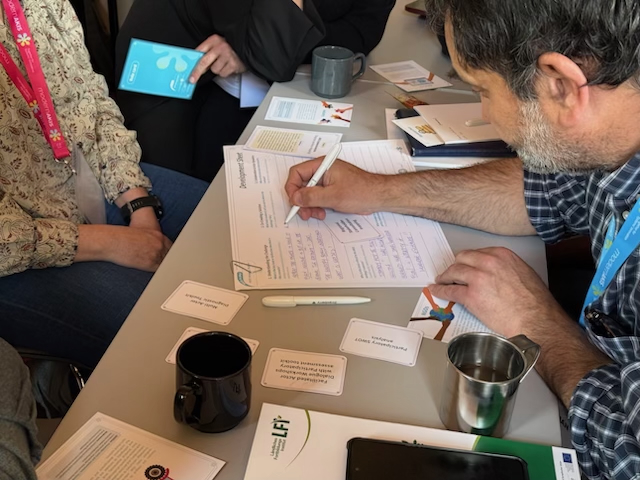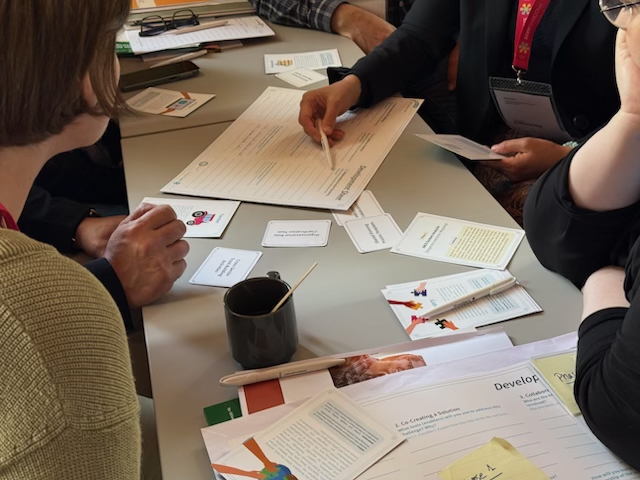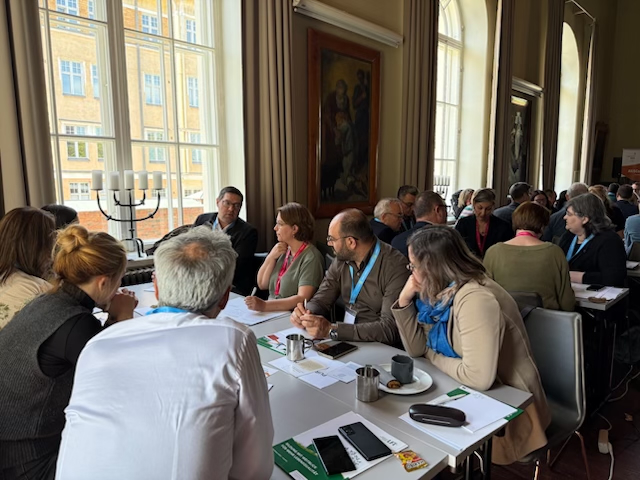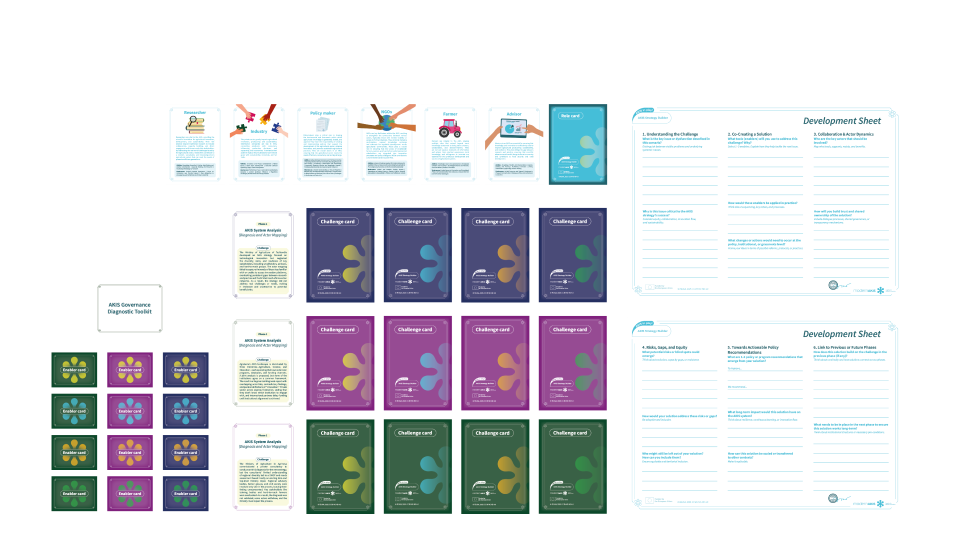
Back to AKIS in Play
Strategy builder





Description
The AKIS Strategy Game is a collaborative, experiential learning activity where participants work together to design a complete Agricultural Knowledge and Innovation Systems (AKIS) strategy. Over the course of play, each team must navigate a series of interconnected scenarios—one for each of the four key phases of AKIS strategy development:
System Analysis – Diagnosing the AKIS, mapping actors, and understanding knowledge flows.
Strategy Design – Setting goals, planning actions, and aligning resources.
Implementation – Executing the plan, managing resources, and coordinating across actors.
Evaluation & Adaptation – Monitoring progress, learning from results, and adjusting the strategy.
Each challenge presents a fictional yet realistic problem inspired by the complexities agricultural innovation systems face in the real world. Teams must create solutions that not only resolve the immediate challenge but also ensure their AKIS strategy remains coherent, inclusive, and effective across all phases.
Players take on one of six AKIS roles—Farmers, Advisors, Researchers, Policy Makers, Private Sector, and NGOs—ensuring that multiple perspectives shape the decisions. Throughout the game, they can draw on “Enablers,” which represent realistic tools, methods, and strategies commonly applied in the co-creation of solutions. These may help overcome barriers, improve collaboration, or enhance the impact of the team’s actions.
In contrast to our previous game, “The Knowledge Path,” which focused on exploring the different stages of knowledge flows, the AKIS Strategy Game emphasizes the development of a complete AKIS strategy—one that must address all scenarios and problematics the team faces throughout the various stages.
The ultimate goal? By the end of the game, the team will have co-created an integrated AKIS strategy that successfully addresses every scenario they encountered—no matter how complex or unexpected the challenges became.
The downloadable kit contains everything you need to run the game for up to three teams (Blue, Purple, and Green). It is adaptable for both small and large groups.
Contents per team set:
- Instruction Sheet – Step-by-step guide on how to play.
- Actor Role Cards (6) – One for each AKIS role.
- Challenge Cards (4) – One per AKIS strategy phase, with three possible scenarios for each phase.
- Enablers (20) – Tools, methods, and strategies to support challenge resolution.
- Development Sheets (4) – Templates for collaboratively designing solutions.
No. players/teams
7 participants (6 Players + 1 Moderator)
Duration
Adaptable, but worth to dedicate at least one hour and a half
Format
In person
Authors
Sofia Mouseti (AUA)
Rebeca Díez (FEUGA)
Amalia Hafner (FEUGA)
Translation responsible
Contact Details
License
CC BY-NC-ND 4.0

